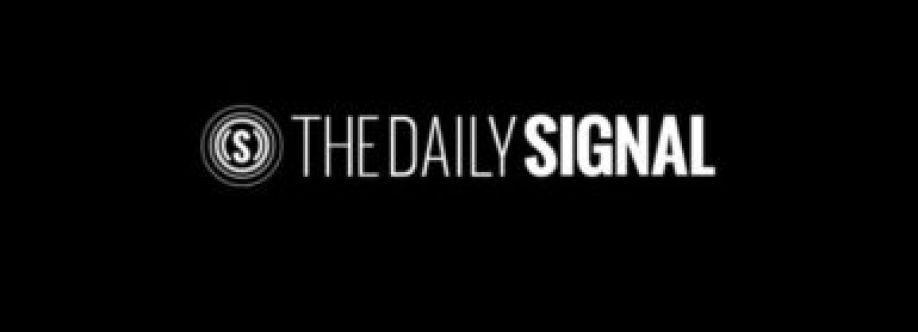
www.dailysignal.com
EXCLUSIVE: Cities Church Responds to Don Lemon Arrest
FIRST ON THE DAILY SIGNAL—Cities Church, the St. Paul church invaded by agitators opposing Immigration and Customs Enforcement, responded Friday after federal agents arrested former CNN host Don Lemon Thursday night in Los Angeles.
“We are grateful that the Department of Justice acted swiftly to protect Cities Church so that we can continue to faithfully live out the church’s mission to worship Jesus and make him known,” Jonathan Parnell, the church’s lead pastor, said in a statement first provided to The Daily Signal.
Renee Carlson and Doug Wardlow, the attorneys for True North Legal who represent Cities Church, also celebrated the arrests.
“The freedom to worship God without fear of violence and intimidation is a fundamental right that defines who we are as Americans,” the attorneys said. “True North Legal and Cities Church are grateful that the Department of Justice is committed to upholding that freedom and is holding the agitators who invaded the church accountable.”
?EXCLUSIVE@citieschurch Head Pastor @jonathanparnell responds to Don Lemon's arrest:“We are grateful that the Department of Justice acted swiftly to protect Cities Church so that we can continue to faithfully live out the church’s mission to worship Jesus and make him… pic.twitter.com/B2Zi8O8dag— Tyler O'Neil (@Tyler2ONeil) January 30, 2026
Don Lemon’s Arrest
“Don Lemon was taken into custody by federal agents last night in Los Angeles, where he was covering the Grammy awards,” Lemon’s attorney, Abbe Lowell, wrote in a statement posted to Lemon’s show on YouTube.
“Don has been a journalist for 30 years, and his constitutionally protected work in Minneapolis was no different than what he has always done,” Lowell added. “The First Amendment exists to protect journalists whose role it is to shine light on the truth and hold those in power accountable.”
Attorney General Pam Bondi confirmed the arrest, and also mentioned that federal agents arrested Trahern Jeen Crews, Georgia Fort, and Jamael Lydell Lundy.
At my direction, early this morning federal agents arrested Don Lemon, Trahern Jeen Crews, Georgia Fort, and Jamael Lydell Lundy, in connection with the coordinated attack on Cities Church in St. Paul, Minnesota.More details soon.— Attorney General Pamela Bondi (@AGPamBondi) January 30, 2026
The Justice Department initially sought charges for Lemon, among others, for violating the Ku Klux Klan Act and the Freedom of Access to Clinic Entrances Act earlier this month when he entered Cities Church in St. Paul amid an invasion of the service.
The Klan Act criminalizes the deprivation of rights, and the Justice Department has claimed the church invaders deprived worshippers of their First Amendment right to religious exercise. The FACE Act protects access to houses of worship.
A federal magistrate judge, however, refused to sign a warrant for Lemon’s arrest. The Justice Department appealed that decision, but the court noted that prosecutors could improve the filing before presenting it to the same judge, or present the case to a grand jury to seek an indictment.
The Justice Department withdrew the appeal earlier this week, and it seems prosecutors found another way to bring the case.
?BREAKINGDon Lemon's attorney Abbe Lowell has confirmed that federal agents arrested the former CNN anchor last night.Lemon claims he was there as a journalist and should be protected by the First Amendment.@citieschurch attorney Renee Carlson noted, however, “There is no… pic.twitter.com/tP7KwmTpmN— Tyler O'Neil (@Tyler2ONeil) January 30, 2026
First Amendment Defense?
Lemon has claimed that he went to Cities Church merely to cover the agitation as a journalist, and did not intend to violate anyone’s rights.
Lowell faulted the Justice Department for pursuing Lemon, rather than the federal agents who shot Renee Good and Alex Pretti, both 37, amid the surge of federal law enforcement in Minneapolis.
“Instead of investigating the federal agents who killed two peaceful Minnesota protesters, the Trump Justice Department is devoting its time, attention and resources to this arrest, and that is the real indictment of wrongdoing in this case,” Lowell wrote. “This unprecedented attack on the First Amendment and transparent attempt to distract attention from the many crises facing this administration will not stand. Don will fight these charges vigorously and thoroughly in court.”
Renee Carlson, who represents Cities Church as general counsel for True North Counsel, had highlighted a previous statement suggesting that, even if Lemon avoids all criminal liability, he may face civil liability.
“The First Amendment does not allow premeditated plots or coordinated actions to violate the sanctity of a sanctuary, disrupt worship, and intimidate small children,” Carlson said in a previous statement she highlighted for The Daily Signal. “There is no ‘press pass’ to invade a sanctuary or to conspire to interrupt religious services.”
?HORRIFYING NEW DETAILSThe invasion of Cities Church was even worse than we thought. Agitators blocked stairs so "parents were unable to get to their children" at Sunday School.?One told a kid, "Do you know your parents are Nazis, they're going to burn in hell?"?1/7 pic.twitter.com/DUNPRdECGa— Tyler O'Neil (@Tyler2ONeil) January 25, 2026
Georgia Fort, another journalist who claims she was there to document the invasion, released a video shortly before surrendering to federal agents.
Independent journalist Georgia Fort was also arrested by federal agents earlier for reporting on the church protest in Minneapolis. She was live streaming when agents arrived to take her into custody. pic.twitter.com/tAibU7sBsi— MeidasTouch (@MeidasTouch) January 30, 2026
The Church Invasion
Between 30 and 40 anti-ICE agitators interrupted a Sunday service at Cities Church, a non-denominational Christian church, and shouted, “Justice for Renee Good!” as they surrounded members of the congregation.
Videos of the incident show the pastor and others repeatedly asking the agitators to leave, and the agitators chanting, “Who shut this down? We shut this down!”
According to the charging document, a member of the congregation said worshippers were “terrorized, our children were weeping.” One woman broke her arm. Agitators blocked about 50 members of the congregation from exiting, making it “nearly impossible for parishioners to get out and leave.”
The document also mentions that agitators prevented congregants from getting to their children, and one of the agitators reportedly told young children, “Do you know your parents are Nazis, they’re going to burn in hell?”
Last week, law enforcement arrested Nekima Levy Armstrong, Chauntyll Louisa Allen, and William Kelly, the man who posted videos of the incident online on the handle “DaWoke Farmer.”
The magistrate judge who declined to sign Lemon’s arrest warrant also rejected FACE Act charges against Armstrong, Allen, and Kelly, but approved their arrests for violation of the KKK Act.
Nekima Armstrong, leader of the Racial Justice Network and a former president of the Minneapolis chapter of the NAACP, told Democracy Now that she does not regret helping to lead the protest.
“We are unapologetic about going into the church,” Armstrong said. She called it a “conflict of interest” for a pastor to oversee “the brutal conduct of ICE agents.”
After the church invasion, Lemon attacked the “type of Christianity” practiced by Cities Church, claiming that the church has an “entitlement” that “comes from white supremacy.”
The post EXCLUSIVE: Cities Church Responds to Don Lemon Arrest appeared first on The Daily Signal.

